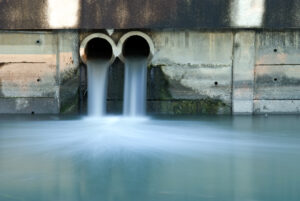Streamlining Industrial Cooling: The Hassles of Waste Water and the Benefits of Air-Cooled Heat Exchangers
March 4, 2024 by George Smith

In industrial processes, managing waste water can be a significant challenge. On the other hand, air-cooled heat exchangers offer a simpler and more efficient alternative.
- Cost and Resource Management: There are many requirements for water treatment, disposal, and compliance. This involves significant costs and resource allocation. By contrast, air-cooled heat exchangers eliminate the need for water, reducing costs and streamlining resource management.
- Environmental Impact: Water cooling systems contribute to pollution, posing environmental challenges. The disposal of waste water can lead to contamination of water bodies and soil. By eliminating water usage, air-cooled heat exchangers mitigate these environmental risks and promote sustainability.
- Maintenance and Downtime: Water cooling systems require regular maintenance to prevent fouling and scale buildup, leading to downtime. Air-cooled heat exchangers, with their simpler design, require less maintenance and offer greater reliability, minimizing downtime.
- Regulatory Compliance: Compliance with water quality regulations is complex and time-consuming. Air-cooled heat exchangers simplify compliance by eliminating the need for water management.
- Safety Concerns: Water cooling systems pose safety risks in heat treatment, increasing the risk of water-related accidents. Air-cooled heat exchangers eliminate these safety concerns, providing a safer working environment for employees.
In conclusion, the transition from water cooling systems to air-cooled heat exchangers offers lots of benefits, including cost savings, environmental protection, reduced maintenance, simplified compliance, and improved safety. By opting for air-cooled heat exchangers, industries can streamline their cooling processes and enhance overall efficiency.
